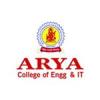JEE Main preparation tips are a rigorous journey that demands a strategic, disciplined, and personalized approach. Drawing from Arya College experts and top national resources, here’s a comprehensive, long-form guide to help you crack JEE Main 2025 with confidence and secure a seat in a premier engineering college.
How to crack JEE Main 2025
Understand the Exam Pattern and Syllabus Thoroughly
- Know the Structure: JEE Main comprises Physics, Chemistry, and Mathematics. Paper 1 (BTech) is computer-based, while Paper 2 (BArch/BPlan) includes drawing and aptitude sections.
- Analyze the Syllabus: Download the latest JEE Main syllabus and compare it with your Class 11 and 12 topics. Mark chapters with high weightage and recurring patterns in previous years’ papers.
- Board vs. JEE: Most of the JEE syllabus overlaps with CBSE/State Board, but the level of application and problem-solving required is much higher for JEE.
Craft a Realistic, Personalized Study Plan
- Start Early, But It’s Never Too Late: Ideally, begin in Class 11, but focused, smart study in Class 12 can also yield results if you are determined.
- Daily & Weekly Goals: Break down the syllabus into daily and weekly targets, ensuring balanced coverage of all three subjects.
- Time Management: Allocate more time to weaker subjects, but don’t neglect your strengths. Schedule regular revision slots and stick to your timetable strictly.
- Flexibility: Adjust your plan as you progress, based on mock test performance and self-assessment.
Build Strong Conceptual Foundations
- NCERT First: Start with the NCERT textbooks for Physics, Chemistry, and Mathematics. They are indispensable for understanding basics and are directly referenced in JEE.
- Reference Books: Once NCERT is mastered, move to standard books:
- Physics: H.C. Verma, D.C. Pandey
- Chemistry: O.P. Tandon, Morrison & Boyd (Organic), J.D. Lee (Inorganic)
- Mathematics: R.D. Sharma, Cengage, M.L. Khanna
- Clarify Doubts Promptly: Don’t let doubts pile up. Use online forums, coaching, or peer groups for quick resolution.
Practice Intensively with Mock Tests and Previous Papers
- Solve Previous Years’ Papers: Attempt at least 5-6 years’ worth of JEE Main papers to understand the question pattern and difficulty level.
- Mock Tests: Take full-length mock tests regularly under timed conditions. Analyze your mistakes and work on weak areas.
- Topic-wise Practice: Start with chapter-wise and subject-wise tests, then move to full syllabus mocks as the exam approaches.
- Error Analysis: Maintain an error log to track recurring mistakes and misconceptions.
Make Short Notes and Flashcards
- Condense Formulas & Concepts: After each chapter, create short notes for formulas, tricks, and key concepts. These are invaluable for quick revision before the exam.
- Visual Aids: Use diagrams, flowcharts, and tables for better retention, especially in Chemistry and Physics.
Revision Strategy
- Regular Revision: Revise topics periodically—weekly, monthly, and before the exam. This reinforces memory and uncovers gaps in understanding.
- Use Short Notes: In the last month, focus on revising from your notes and flashcards rather than bulky textbooks.
Master Time Management and Exam Strategy
- Timed Practice: Always solve papers and mock tests within the official time limit (3 hours). This builds speed and accuracy.
- Question Selection: In the exam, attempt easy and familiar questions first, then move to tougher ones. Don’t get stuck on a single problem.
- Accuracy Matters: Avoid guesswork, as negative marking can lower your score.
Stay Consistent, Motivated, and Healthy
- Consistency Over Intensity: Study regularly, even if for shorter durations. Consistency yields better results than sporadic cramming.
- Stay Disciplined: Avoid distractions during study hours. Use apps to block social media if needed.
- Physical and Mental Health: Take short breaks, exercise, and ensure adequate sleep. A healthy mind and body are crucial for peak performance.9. Leverage Expert Guidance and Peer Support
- Coaching/Online Platforms: Utilize coaching classes, online lectures, and doubt-clearing sessions for expert insights.
- Peer Learning: Group studies and discussions can help clarify concepts and expose you to different problem-solving approaches.

